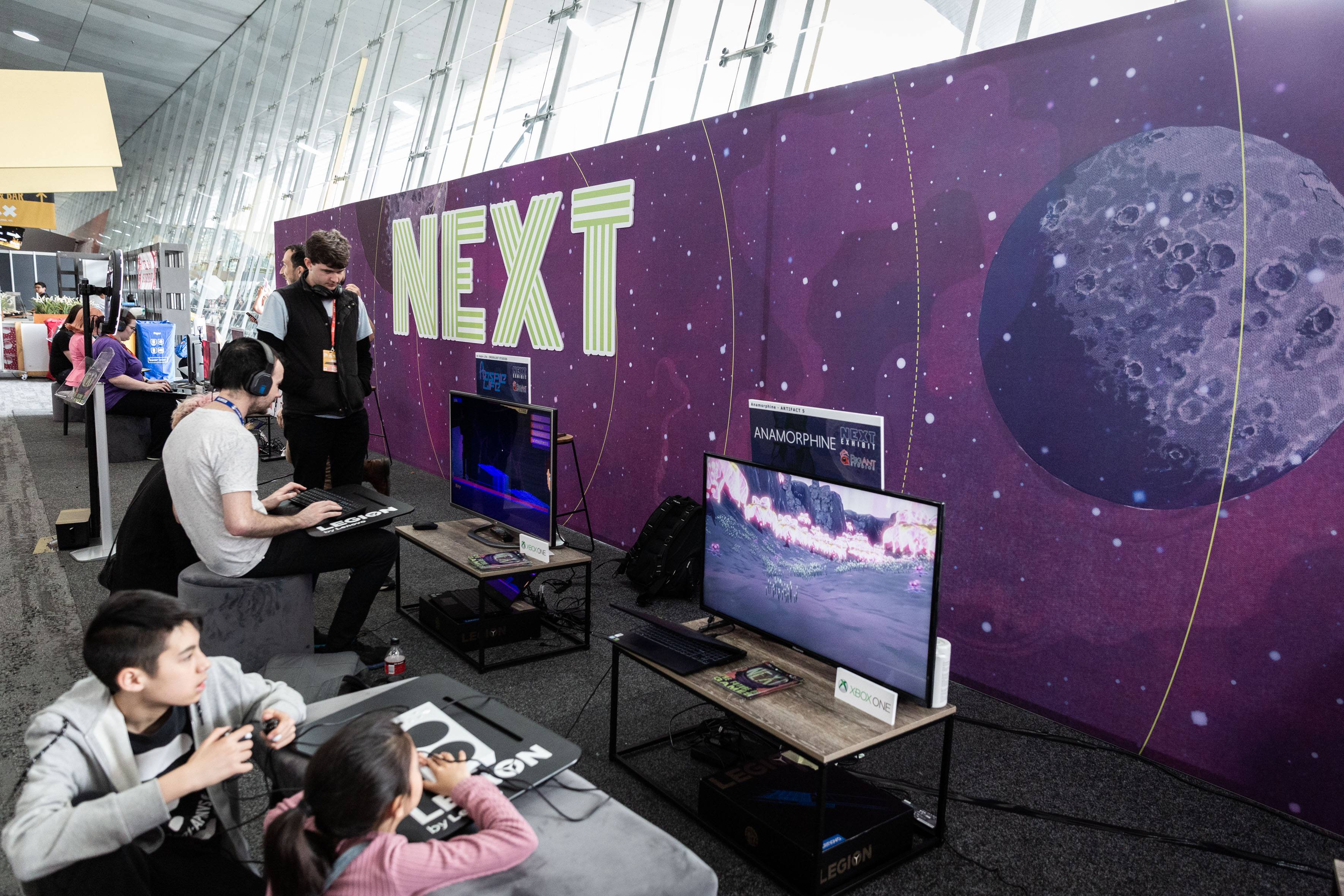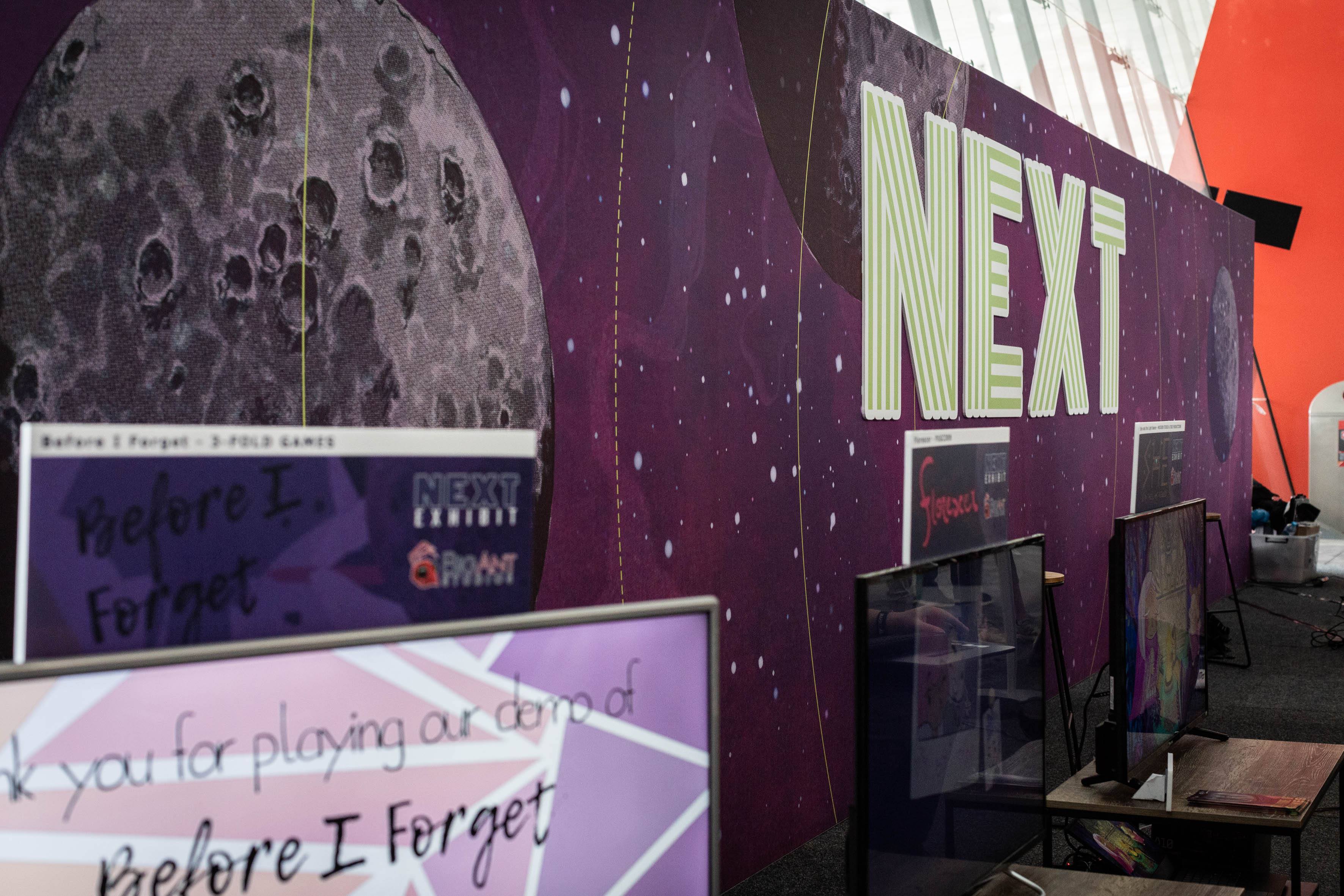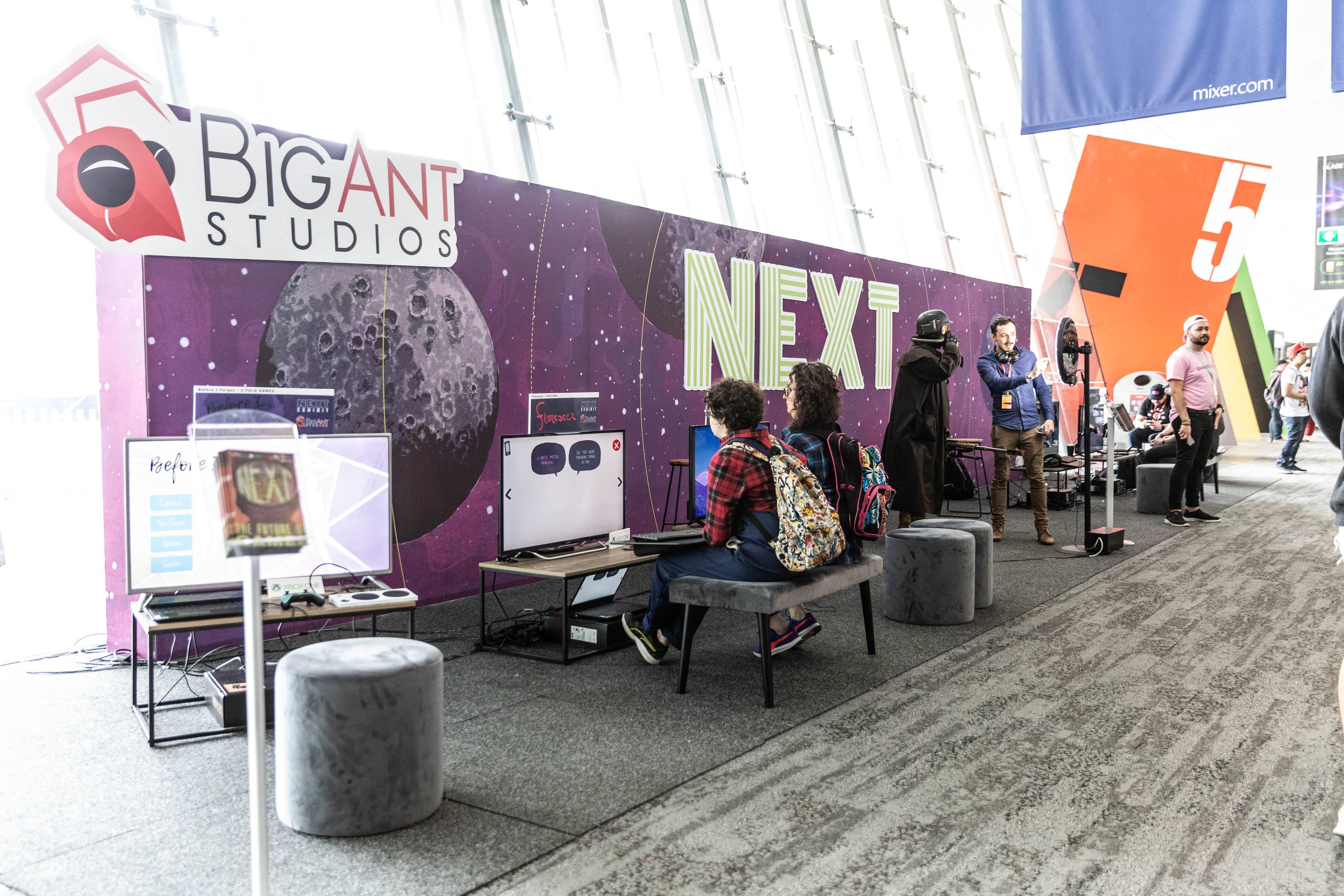True Diversity, True Representation: What’s Next In Video Games

Every year, video game fans from all over Australia – and the world – converge upon the Melbourne Convention and Exhibition Centre for PAX Australia. Gathered to attend panels, play video games, and have a peek at ones that have not yet been released, it’s a loud, crowded event, soaked in energy and bright enthusiasm.
This year, a new exhibit made its debut outside the Expo Hall. Set aside from the hype men and hustle of the show floor, six small games were lined up on the concourse, spaced widely apart in front of low, cushioned benches. This was the NEXT Exhibit, a calming haven amidst the exuberance.
“It feels like a little oasis,” said Ally McLean, the NEXT Exhibit’s curator, speaking to me at the exhibit.
This is by design. Careful thought was put into making the exhibit welcoming and accessible, with plenty of room for wheelchairs to manoeuvre and for people to breathe. Xbox’s new Adaptive Controller, specifically designed for people with disabilities, was also available for visitors to try out.
“We wanted it to be a space that felt comfortable and relaxed, so if you’re feeling a bit overwhelmed, or if you want to sit down and have some quiet time with a nice game, you could come here,” said McLean.
“We really wanted it to be a space outside of the kind of chaos of a trade show where people can actually connect with the material, and also have it become part of their lives.”

A game developer herself, McLean’s experience showing her game internationally last year inspired her to curate a collection of diverse games from around the globe and present them at PAX Aus.
“If we’re bringing together Australia’s most passionate gaming enthusiasts – the biggest group of them in the southern hemisphere in one place at one time – why not use that as an opportunity to broaden their minds about what games can be and who can make games?” said McLean.
“Game development is now more accessible than it’s ever been, so I think it’s time to start shifting perceptions of who game developers are, what kind of games they make, and who plays games as well.”
As such, the six games showcased come from a diverse range of developers, who are using the medium to tell stories not traditionally associated with video games.

Anamorphine by Canadian studio Artifact 5 deals with themes of mental illness, the player character walking through his shifting memories to come to terms with what happened to his depressed wife.
Before I Forget from 3-Fold games, an all-female UK team, follows a woman with dementia exploring her house and trying to remember her life. “It’s simple and elegant and it really tenderly handles the subject matter,” said McLean.
Boyfriend Dungeon by Kitfox Games in Canada is a dating sim with a dungeon crawling element. It lets players choose between pronouns he, she and they, and will allow them to date male, female and non-binary weapons (or just bond with a cat).
Florescer by Pugcorn in Brazil puts the player into the role of a transgender high school girl in a new town, dealing with the difficulties faced by transgender people.
She and the Light Bearer, a collaboration between Indonesian studios Mojiken Studio and Toge Productions, tells an Indonesian folktale about Mother Earth through a point-and-click adventure. “It’s all about preservation of culture,” said McLean.
And Australian game An Aspie Life by Bradley Hennessy, Joe Watson and EnderLost Studios depicts life with Asperger’s syndrome, based upon Bradley’s own experiences.
McLean tells me the games were chosen by a jury of diversity advocates and game developers. In whittling them down, they asked themselves: “Is this game going to show people something they’ve never seen before?” “Are we showing a broad cross-section of the type of people making games out there?” “Which are the most unique? Which are the things that have a real story to tell and a message that people should hear?”
“One of our priorities was to make sure not just that we bring the games out, but that we bring the message with them. So we spent a decent amount of time getting to know the developers, getting to know their message,” said McLean.

Having received nearly 100 responses to the open call for submissions, the jury had to be very selective in choosing the games showcased. Six was the maximum number of games that would fit in the NEXT Exhibit’s floor space if they wanted to ensure accessibility. Unfortunately, that meant some great games couldn’t be included.
“There were so many that I fell in love with along the way that couldn’t make it in,” said McLean. “It Will Be Hard was one of them. It Will Be Hard just won an award at the Australian game developer awards the other night. Which is this beautiful interactive comic – LGBTQ comic – and it’s just gorgeous.”
But the games that were chosen came together to thread an empathetic, caring tone throughout the exhibit. Each approaches their subject matter with sincerity and sensitivity, gently putting questions to players that they may not have previously considered.
“I think they are all quite meditative, and they’re something that requires you to think and sit down and spend time with them,” said McLean. “Even Boyfriend Dungeon, which is probably our most upbeat game, it still really makes you think about your choices.”
This quiet approach, so at odds with flashier and more familiar games, paid off. McLean told me that visitors to the NEXT Exhibit were spending an average of 45 minutes with a game. Such a length of time was unthinkable in the Expo Hall, where crowds would line up to wait for five minutes with a game.
“Because of the [NEXT Exhibit’s] design, people aren’t lining up waiting for you to be finished. People are just kind of mingling around and like looking at everything and chilling out. So you don’t feel the pressure to finish the game and then rush away and move on to the next thing.”
“Everyone who’s come by has been inherently curious, you know, ‘What is the exhibit about, tell me about the developers, what’s this game about, why did they make it?’ says McLean. “It doesn’t feel like a commercial experience – it doesn’t feel transactional. It’s generally people want to connect with the material, which is so important for games like these.”
The NEXT Exhibit was all about connection – players to games and people to each other. Visiting the exhibit at PAX Aus was like ducking into a quiet corner of the club to rest your feet from dancing, only to be pulled into a conversation with some strangers and leave with six new friends.
“One of the best things is when people finish a game and they get out their phone and they look up the developers on Twitter or they wishlist it on Steam or they just write down the name of it,” said McLean. For her, these moments demonstrated that the exhibit had achieved exactly what it set out to do.
These six games, and the NEXT Exhibit itself, came together because people care – about sharing stories, creating opportunities, and broadening the spectrum of both games and developers. The hope is that the exhibit will return next year, and continue to grow alongside the industry.
“This is what’s next for the games industry – true representation, true diversity of content, [and] of the people making the games,” said Mclean. “This is the future of games.”


